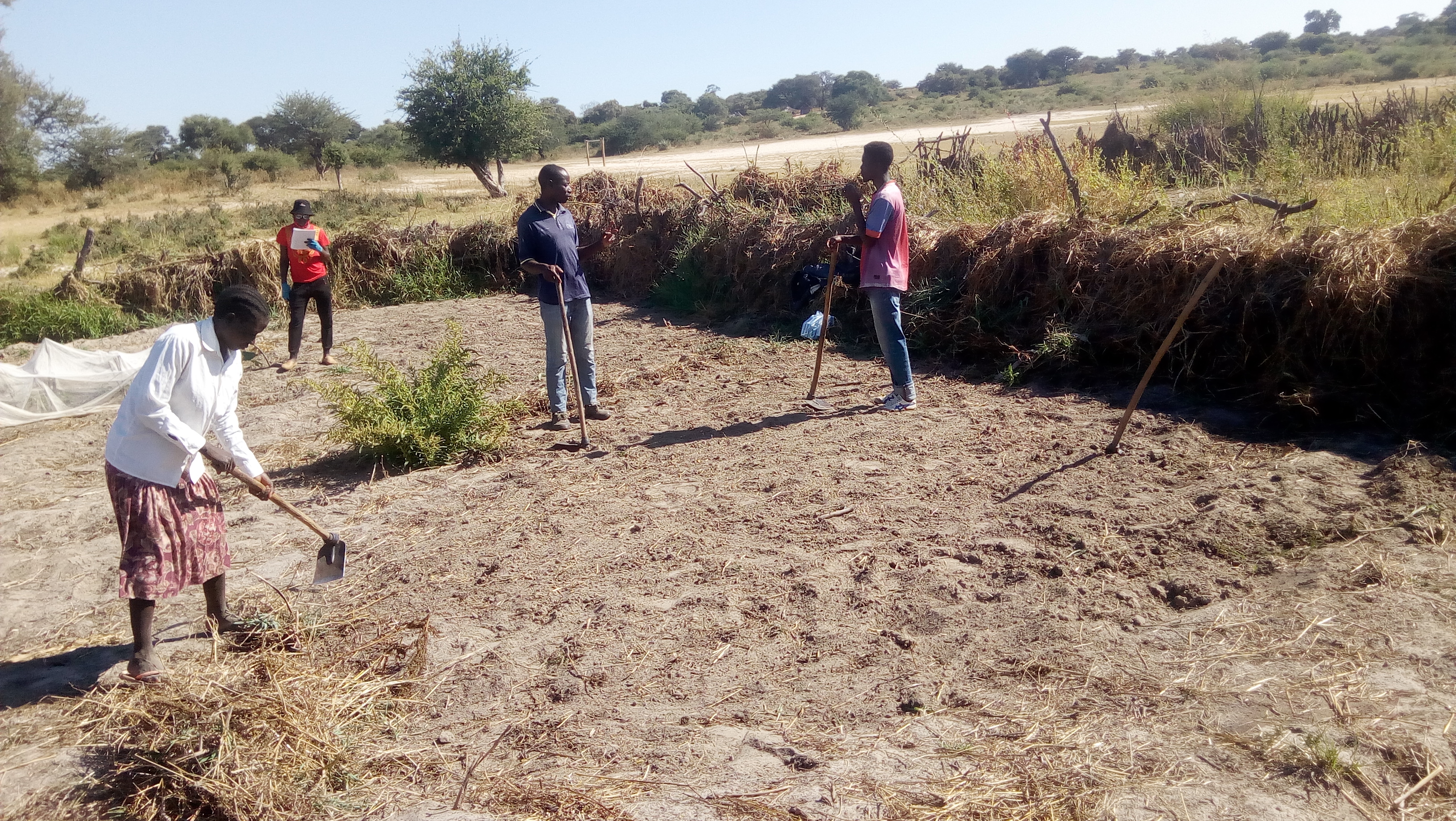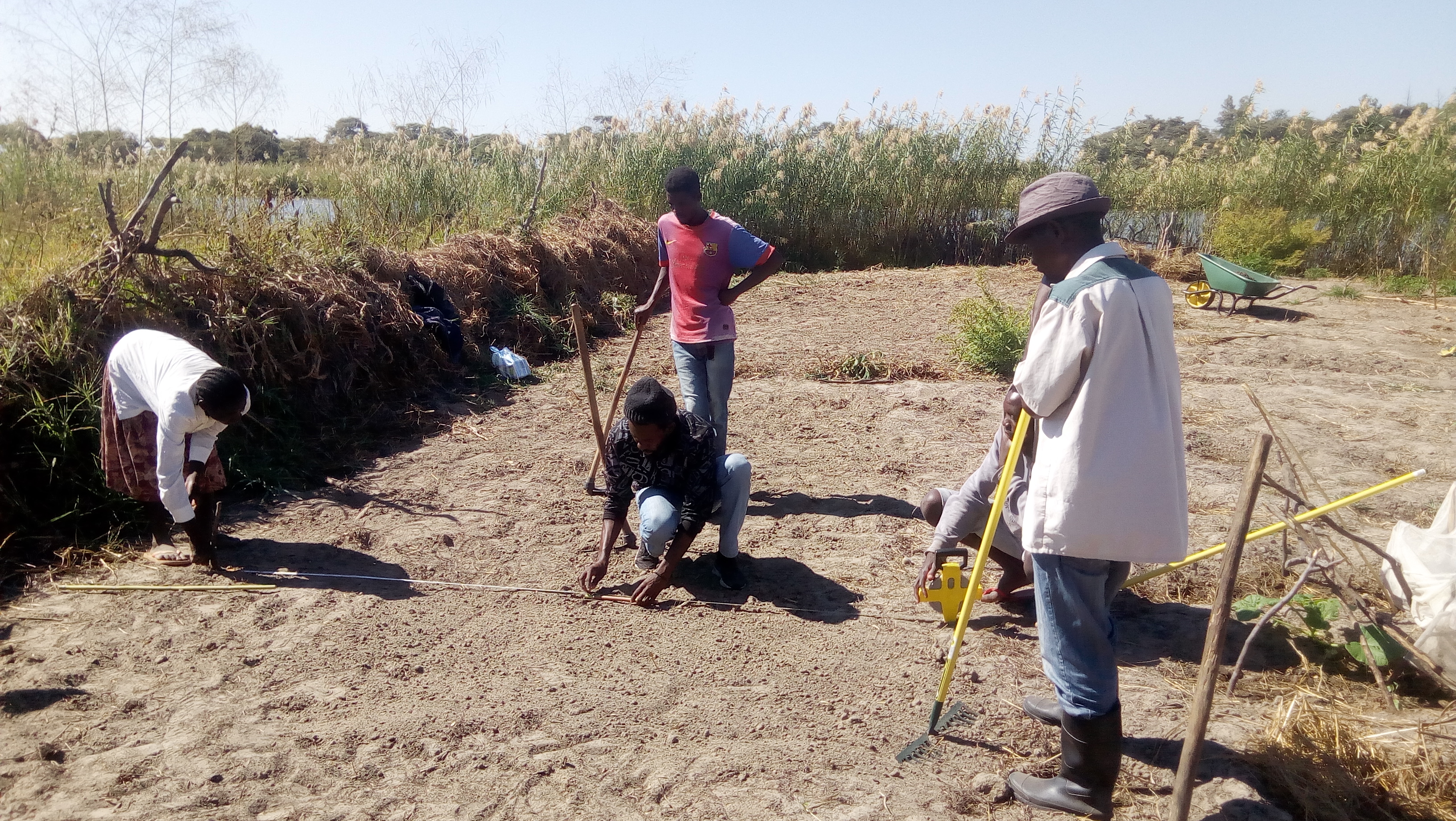- Home
- About Us
- Background
- Mandate
- Cubango Okavango River Basin
- Governance
- Strategy and Approach
- Member States
- Our Work
- Partners
- Climate Resilient Infrastructure Development Facility (CRIDF)
- European Union (EU)
- Southern African Development Community (SADC)
- Swedish International Development Cooperation Agency (SIDA)
- The World Bank (WB)
- United Nations Development Programme (UNDP)
- United States Agency For International Development (USAID)
- Resources
- News and Events
- Opportunities
- Contact Us
- FAQ's
- Connect With Us
- i
- t
- f

UNDP-GEF Project Partners to Upscale Conservation Agriculture in Angola
Wednesday, April 7, 2021


The OKACOM UNDP-GEF Project has recently partnered with the EU Programme for Transboundary Water Management to implement the Enhancing Climate Change Resilience through Conservation Agriculture Demonstration Project. The project targets 30 rainfed farmers in Ndamundamu and Kafulo within the Calai municipal administration in Angola. Situated along the banks of the Okavango River, farmers from this community depend on the local water source for domestic use, livestock watering, small-scale irrigation, and practice fishing. Initiated in 2018, the demonstration project's objective is to raise awareness on sustainable land management, build local farmers climate resilience, and improve food security. One approach is to build farmers' capacities in alternative agricultural practices through the implementation of Conservation Agriculture (CA), which is based on the principles of minimal soil tillage, promotion of soil cover, crop rotation, and intercropping to build soil fertility and retain moisture. The activities are being facilitated on the ground by local NGO, Associação de Conservação do Ambiente e Desenvolvimento Integrado Rural (ACADIR) in close coordination with the Ministry of Agriculture, Forest and Fisheries of Angola. The collaboration will strengthen the established Farmers Training Schools, capacitate Lead Demonstration farmers, local government officers and provide improved farming seeds, fertilisers and fencing materials to protect fields. The fencing off fields will enable farmers to control livestock access to CA fields and enable the retention of organic matter and protection of basins. The partnership is also assessing the implementation of alternative livelihoods including market based small-scale irrigated horticulture and Non-Timber Forest Products such as honey. These are to be linked to formal value chains and aimed primarily at diversifying the livelihoods of local communities. These efforts are building on previous work implemented by USAID-SAREP project and forms part of the OKACOM Strategic Action Programme.
Thematic Areas & Activities
News
subscribe for news notification by email
Photo Credit: Kostatin Luchansky, National Geographic, Okavango Wilderness Project.
© [current-date:custom:Y] [site:name]

